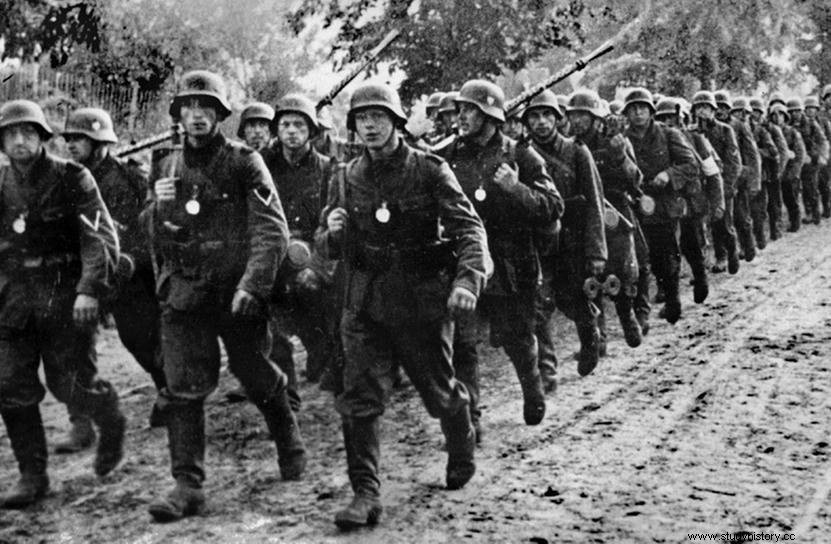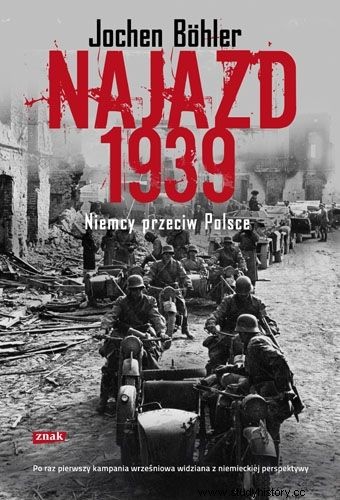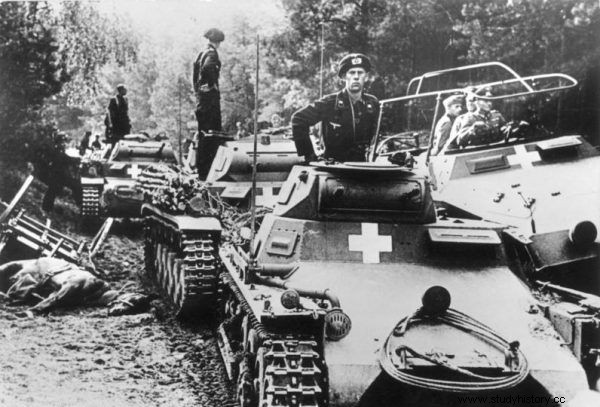Nobody doubts that Adolf Hitler wanted a war with Poland. But what about ordinary Germans? According to the book by German historian Jochen Böhler, many of them were not at all eager to conquer Poland, and even ... they were mortally afraid of a confrontation with the Slavs from the Vistula River.
In the light of the Nazi press or later propaganda publications, on September 1, 1939, the entire German nation proudly went into battle with the worthless and doomed Polish state.
However, when we turn to diaries and diaries instead of official sources, it turns out that at the turn of August and September, Germany was torn by completely different emotions. A number of such sources were quoted in his new book - "Invasion 1939. Germany against Poland" - Jochen Böhler. On August 29, according to Victor Klemperer's account:
the walkers [in Berlin] behaved differently than usual:talking quietly, not laughing and not showing off (p. 98) . Nobody showed enthusiasm when they heard about the outbreak of the war. Willy Cohn wrote in his journal on September 1: I drove home from the market square. Not a hint of patriotic euphoria in the streets . People walk in silence and thought (p. 102).
Terrified Germans awaited bombings and were trembling at the thought of the occupation of border towns by Poles. Everyone darkened the windows, and whoever could arrange a bunker in the basement. Even Hitler's speeches seemed thoroughly pessimistic (p. 100) .

Despite many years of indoctrination, even some of the Wehrmacht soldiers did not feel the euphoria associated with the attack on Poland.
The rank and file stated: we were brought up and forced to obey. And so we marched without enthusiasm, knowing that we were doing our duty. The civilians did not cheer either, saying goodbye to the boys going to war:
At the side of the road there were some relatives and passers-by, so meaningfully silent and concerned as possible. What a contrast to the enthusiasm of the crowds that accompanied the soldiers on their way to World War I. (the account of Richard von Weizsäcker; p. 110).

Already on the third day of the war, the diaries showed a reality that resembled - without trying - life in the insurgent Warsaw or the besieged Festung Breslau. Klemperer wrote on September 3:
Mental torture increasingly difficult to bear . On Friday morning, they ordered a permanent blackout. We are sitting in the basement. Cramped, terribly humid, stuffy, we constantly sweat and we have chills, the smell of mold, food scarcity - all this together adds to the torment (...). It's only the third day, and I have the impression that it has already lasted three years:waiting, despair, hope, guesswork, ignorance ... (pp. 99-100).
Ruth Andreas-Friedrich, working in the editorial office of one of the Berlin newspapers, wrote in her diary that even party officials were afraid of the outbreak of war :
The sticky Meyer, our "political" one, parades today in the uniform of an SS man; I want to celebrate this day. However, he does not give the impression of a man who would be happy about the impending war. And when Hollner takes out a bottle of cognac and tells us to drink from it for goodbye to peace, Meyer also takes a good sip (p. 96).

German tankers ... who did not want to fight at all (photo:Bundesarchiv, Bild 146-1976-071-36, license CC-BY-SA 3.0).
Her colleagues from the editorial office, so in theory perfectly informed people, on September 1 they expected a long, bloody war, the end of which they would not be able to live to. :
We sit around the table and mix the tea in the cups. "It will be a long war," says Flamm in a melancholy voice. - "God knows who will survive at its end." - "Certainly not Mr. Hitler!" Flamm's face twists in a grimace. "What will come of Hitler's death when we smell the flowers from underneath ! ” (p. 97).
Source:
Trivia is the essence of our website. Short materials devoted to interesting anecdotes, surprising details from the past, strange news from the old press. Reading that will take you no more than 3 minutes, based on single sources. This particular material is based on:
- Jochen Böhler, The invasion of 1939. Germany against Poland, Znak Publishing House 2011.
